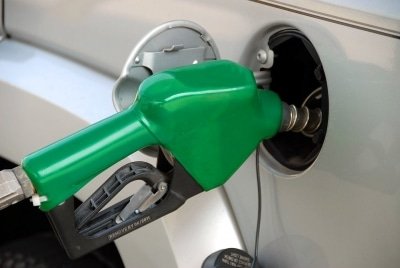<br>Sources in the Central and state governments said that as the two segments (petroleum products and liquor) remain outside the purview of GST, taxes on it could be easily raised by the state governments through a notification.
Taxes on petrol and diesel and liquor comprise almost 40-50 per cent of state revenues. Any increase in taxes on these items would boost a state’s coffers at a time when over a month of lockdown has brought business activity to a standstill and has consequently affected GST collections of state, that in few cases, are estimated to fall more than 80-90 per cent in April.
“Higher taxes on liquor and petroleum products is being seen by states as necessary measure to shore up revenues impacted by lockdown. Delhi has raised duty on both segments along with Andhra Pradesh and few more states. In coming days, almost all state governments are expected to raise taxes on auto fuels and liquor,” said a tax expert who did not want to be named.
States like Haryana and Tamil Nadu have also raised VAT on petrol and diesel and have looked at revenue from liquor segment while other states like Maharashtra, Karnataka and West Bengal had hiked VAT from April 1 itself. Since March 16, state-run oil marketing companies have not increased the basic retail selling price of petrol and diesel.
Saloni Roy, Senior Director, Deloitte India, said: “As the lockdown was suddenly announced and thereafter extended, earnings of state governments have been badly affected, similar to what businesses are also facing. The easing of lockdown conditions announcements made over the weekend have been viewed as a lease of life.”
The state governments’ intent to increase tax petrol and diesel should be seen in light of their rising revenue from the petroleum sector over the years. States revenue from the levy of Sales tax/VAT on petroleum products has been rising consistently since 2014-15 when it stood at Rs 1,37,157 crore to Rs 2,01,265 crore in 2018-19, just Rs 13,000 crore short of the Centre’s earning from excise duty on these products. In the nine months of 2019-20, states have already earned 1,44,952 crore from taxes on petroleum products.
“With states raising VAT on petrol and fiscal, the Centre would find it difficult to shore up its revenue by increasing excise duty on the two products for which it has already taken Parliamentary approval. But in all these, consumer will be the real loser as lower global prices had created the right environment for auto fuel prices to reach levels seen many many years ago,” said the expert quoted above.
With Delhi raising VAT petrol and diesel prices to 30 per cent level, the retail price of the two products has risen by Rs 1.67 and Rs 7.10 per litre respectively. Petrol is being retailed in the capital at Rs 71.26 a litre and diesel at Rs 69.39 a litre on Tuesday. Similarly, with 70 per cent corona cess on liquor, its prices have also reached the highest level in Delhi.
The new levy has become important for the state that is billed to lose significantly on GST revenue in April that is touted to fall to just about Rs 300 crore level from monthly collections of about Rs 3,500 crore.
Other dates like Tamil Nadu, Kerala, west Bengal, Assam and hilly states are also expected to lose between 80-90 per cent of GST revenue in April due to lockdown.
(Subhash Narayan can be reached at subhash.n@ians.in)
–IANS<br>sn/vd
